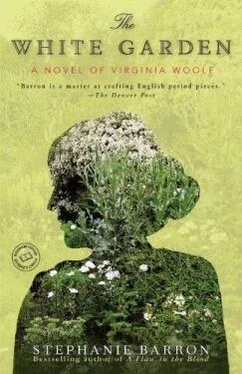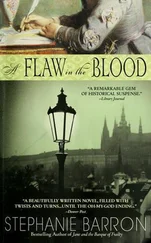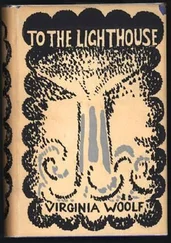She would never be able to pry a secret out of this man. What in God’s name did he owe Peter?
“Right, then — I’ll let you get on with the tour,” the librarian grunted, and turned away. The movement was akin to the shifting of a cannon, and ought to have required the effort of several sweating laborers, but Hamish managed it in a single heaving roll.
“Sorry, but you’re Point of Interest Number One,” Peter said. “In fact, Hamish, old bean, we’ve come direct from London on purpose to see you.”
The librarian grunted again, and rather than heave himself back to face Peter, merely leaned against one of the oak tables. It creaked alarmingly.
“What’s to do?” he asked.
His mouth, Jo noticed, was pursed as though he were sucking aspirin. Or something equally bitter.
“We require a few moments of your time. And your Keys to the Kingdom.”
“My keys?”
“It’s an Apostolic Matter.”
For several seconds, there was silence among them. Jo resisted the impulse to glance over her shoulder. Peter continued to smile genially to himself. And then Hamish said, “Who’s the lady, then?”
“I’m Jo Bellamy.” She extended her hand.
“American.”
“From Delaware, actually.”
Hamish’s eyes drifted from her face to Peter’s. “Perhaps she can have a look at Pooh.”
“No.” Peter shook his head decisively. “That’s not on, Hamish. Miss Bellamy is to be admitted to the Kingdom with full privileges.”
“Bollocks!”
The oath came out as a snarl.
“It’s okay, really,” Jo said feebly as she retreated toward the display case. But Peter was ignoring her. His eyes remained fixed on the librarian’s face with that same expression of unholy amusement.
“Oh, very well,” Hamish muttered in exasperation. “If it must be. I’ll sell my soul to the Devil on your behalf , Peter.”
“Smashing.” Peter reached for Jo’s shoulder, his gaze still on the man he miraculously controlled. The touch of his fingertips, light but certain, sent a jolt of warmth through her body. Startled, she glanced at Peter’s profile — but he appeared unconscious of his effect. He was falling into step behind Hamish. And then he dropped his hand.
Cheeks flushed, Jo quickened her pace to catch up with the librarian, Peter’s lithe frame swinging protectively behind her.
THEY DESCENDED A BACK STAIRCASE, HEELS ECHOING ON metal treads, to the depth of three floors. They must be beneath the colonnade by this time, Jo thought, and the weight of Wren’s massive building pressed on her mind. The subterranean passages of the library were airless, windowless, a labyrinth of lost books. Hamish trudged toward an ancient elevator, the kind Jo had only seen in Hitchcock films: a wire cage framed in mahogany. She and Peter squeezed into it after the Head Librarian, who drew the accordion gate closed with his huge paw, and the whole delicate bauble swayed on its cable ominously.
Hamish had not spoken a word since his concession statement in the Reading Room above; he refused to make eye contact with either of them, his face stony, his lips pouting like a carp’s. He threw a lever, and with a sharp lurch, the cage began to descend. Jo watched as layers of flooring — concrete, wood — slipped above her head inexorably. Three stories. Four. Darkness seeped like ink into the mesh cage and the air was filled with the sound of Hamish’s wheezing. Peter began to whistle tunelessly; was he perhaps a martyr to claustrophobia? And then Jo’s nostrils caught the wet-clay smell of damp earth, familiar from countless gardens but heavy now as the grave. The elevator shuddered to a halt.
Hamish peeled open the door.
Jo stepped out. Her shoes met hard earth. Somewhere was a faint drip of water. And the temperature had fallen to shuddering point.
There was another scent now on the air — elusive, overlaid with gravedigger’s clay, something vanilla and jasmine. She must be imagining it. She shook her head, deliberate as a dog, to clear her senses.
Peter touched her shoulder again. “Come on.”
She walked between the two men, Hamish a moving mountain backlit by the small flashlight he’d drawn from his pocket. The passage was narrow and low, so that the librarian stooped, and even Jo — a good six inches shorter — felt tamped down and trapped. Peter’s tuneless whistle drifted in the air. They turned a sharp corner, and then another, and came to an abrupt halt before a thick oak door bound with iron.
“Here.” Hamish thrust the flashlight into Jo’s palm and reached for a set of keys. “Train that thing on the lock, would you?”
Jo obeyed.
The librarian fitted an old-fashioned iron key into the door and turned it with both hands.
The heavy oak swung inward. Golden light spilled over the threshold. With it came the scent of midnight flowers, stronger and more cloying than a few moments before.
“Damn,” Peter muttered. “I know that perfume. Margaux’s been and gone, hasn’t she?”
Hamish grunted. “She’s friendly with a young Trinity man. An Apostle . He broke all his oaths for her, I’ll be bound.”
“He’s not the first,” Peter said brusquely, and stepped inside.
MARGAUX STRAND’S HEELS CLICKED FURIOUSLY across the paving stones of the King’s College quadrangle. There was a don at King’s she badly wanted to consult named Nadia Fenslow, who’d gone antifeminist and now made a career of celebrating the distinguished males who crowded the English canon in a slavish sort of neo-lit conservatism. Margaux had hoped she might be available, might remember the boozy lunch they had shared during last year’s MLA conference. Nadia of all people would be up to her eyeballs in Apostles, swooning over E. M. Forster in a way that turned Margaux’s stomach, or suggesting that Woolf was but a pale shadow to Lytton Strachey, who’d probably taught Virginia how to spell when she was just a little thing in white muslin. Nadia might have a notion what Apostles Screed meant. Only Nadia was in Reykjavik until the start of Hilary term, and the don who’d borrowed her office had smirked at Margaux as though she were Nadia’s long-lost lesbian lover.
Margaux was seething.
Somewhere a bell tolled three o’clock. She was aware of an insistent curl of hunger in the pit of her stomach, ignored out of long dieting habit. What she wanted was a good glass of Bordeaux and a bit of cheese, possibly some biscuits, with a clever partner to gaze at her over candlelight. She needed somebody who understood her vocabulary and caught her references and knew where to look for the missing half of Woolf’s notebook without demanding to share the limelight. That was the essential difficulty in Margaux’s world at the moment: She had been sharing too much for too long. Other people’s triumphs, for instance. Other people’s credit. She’d contributed modestly to an article chiefly written by someone else, or shored up the course load of those too distinguished to be bothered with students anymore. She’d scrambled for a few crumbs of the Oxford pie to savor all by herself. At this point in her career, Margaux had reached the point she thought of as Lady Macbeth’s Choice: Crush all obstacles in her path to power, or exit stage right, on maternity leave. Having jettisoned Peter, the latter choice was probably out for the nonce. Single motherhood was far too impoverishing.
Peter had looked quite forlorn, poor poppet, she decided fondly — trailing into her rooms with that regrettable American in her corduroy trousers, staring at Margaux with the eyes of a wounded hound, and handing her the means of being feared and envied for the rest of her literary days. Peter was too endearing; a failure in his own right, of course, but endlessly devoted. It was comforting to have a Peter in one’s past. Just as it had been essential to leave him behind.
Читать дальше












